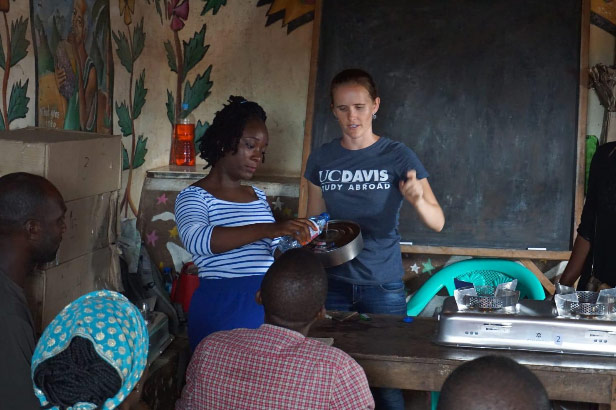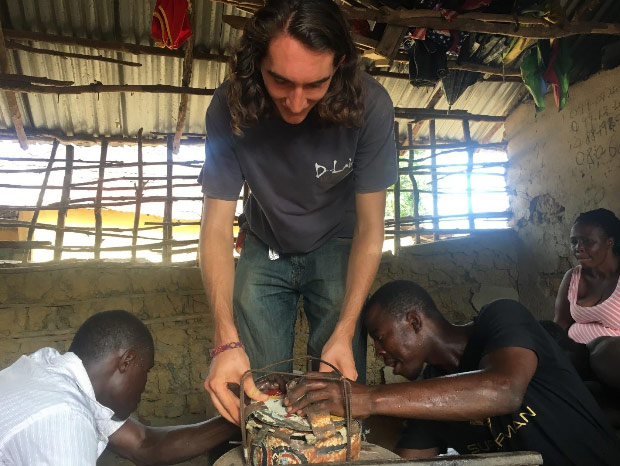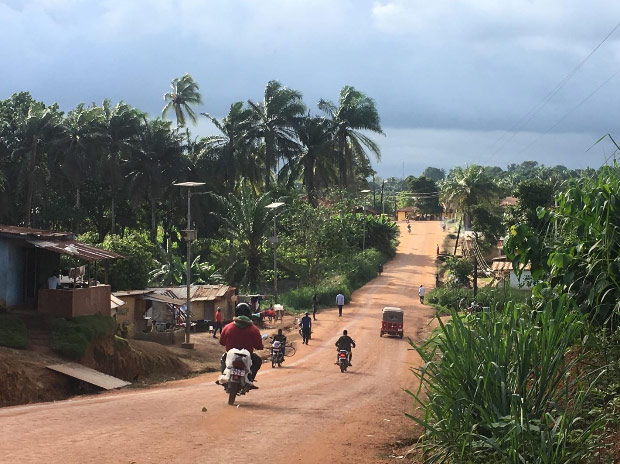
Dana Armstrong in Sierra Leone
From late July to early November 2018, I had the privilege of traveling to Bo, Sierra Leone to assess the feasibility of ethanol cookstoves as a clean-cooking alternative in households. Ethanol made from cassava root had long been a dream of UC Davis Humphry fellow and Sierra Leonean native Martin Kailie, with whom I worked to execute this study.
Thanks to the generous Jastro grant, our team was able to purchase, ship and import fifty CleanCook ethanol stoves from Lagos, Nigeria to Freetown, Sierra Leone, and distribute them into households as the critical focus of our study.
Sunbird Bioethanol, a Sierra Leonean-based ethanol plant that is currently exporting their product and interested in building a local market, donated 1,500 liters to our study.
Our research team consisted of myself, another UC Davis student Peter Nasielski, Martin’s daughter Massa Kailie and Martin’s friend Sulay Koroma. Massa and Suley are both experienced researchers and served both as local expertise and cultural translators. They were indispensable and incredibly helpful! After conducting over two hundred in-depth interviews with charcoal and wood producers, retailers and wholesalers, as well as biomass consumers and gas consumers, we had a strong idea of the existing landscape of the cookstove and fuel market.
We held an open event where individuals could come to learn about the stove and our initiative. Interested individuals could take home a stove for a deposit of $4 and were allowed unlimited fuel for three weeks. During this time we measured qualitative experience with the stove as well as gathered an average estimate of the demand for fuel if families were to use the fuel for all household tasks.

After these three weeks we implemented a price regime and ordering system for the fuel, and quickly saw that the demand dropped very low. Families used the fuel in the same way they would use butane gas burners that were available to some, which was to boil water, fry an egg, and perform other quick tasks for which lighting a fire would be a lot of work.
However, after giving out the first twenty five stoves, our team determined to keep them in households while the ethanol was still available—we had over 600 liters still around by the time I was set to return. Martin distributed the remaining twenty-five stoves to high-income individuals he knew would make good customers for the market. I am pleased to say we left the country with a rough distribution plan in place and all fifty stoves being used in households regularly, and a plan to secure more ethanol in place—the beginnings of Martin’s business!
During our study we learned that the fuel itself is too expensive to displace wood and charcoal, but is very competitive with gas. For this reason we think the market for stoves and fuel could thrive even more in the capital city of Freetown where many families cook with a butane gas burner.
While we were there, we also looked at the possibility of building a stove locally as opposed to importing it. Peter worked with metalsmiths to design several possible affordable prototypes. We also performed a gas-comparison test, a kerosene comparison test, and a local pot comparison test to identify limitations and metrics of the stove as compared to local sources.

Sierra Leone is an incredibly beautiful, lush, small country. The people are welcoming and open, and recently they have voted in a new government that is keen to see effective change. During the time I was there, I saw new water lines being laid, and school was made free and compulsory for the first time! It’s frustrating to see how little the prior corrupt administration had done, and I left with a very hopeful optimism for this next season of the country’s future. Keep Sierra Leone on your radar, for good news will be coming from there!
